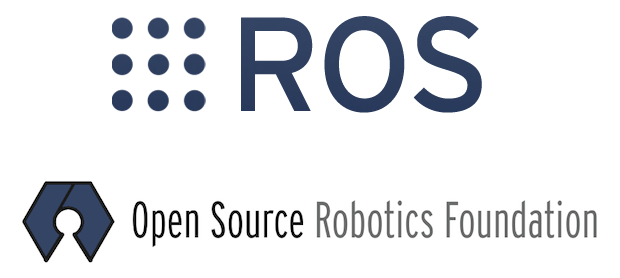
Robohub.org
We Robot Conference: The Ethical Robot License for open robotics
On April 8-9, Stanford Law School held the second annual robotics and law conference, We Robot. This year’s event focused on near-term policy issues in robotics and featured panels and papers by scholars, practitioners, and engineers on topics like intellectual property, tort liability, legal ethics, and privacy. The full program is here.
This post is part of Robohub’s We Robot coverage.
Paper: A Licensing Approach to Regulation of Open Robotics
Author: Diana Marina Cooper
Moderator: Michael Froomkin
Last year when Willow Garage announced that the company will be changing its funding model there was a few hours of confusion where some people thought the open source robotics company was going to shut down. The robotics community was shocked to hear the news– later found to be erroneous. Reaction from the research community in particular was that of a panic.
That is because a lot of robotics researchers have been depending on continued existence of the company’s products, especially the open source Robot Operating System (ROS). Currently there are over 90 known institutions all over the world contributing repositories to the ROS community alone, and the number of contributions to the community has been increasing exponentially. And that’s just considering ROS and not the other open robotics communities that exist throughout the world.
 Given the popularity of open source communities and its rapid growth it is not surprising that open source was a hot topic of discussion at the We Robot 2013 conference last month. Intellectual property of open source systems was discussed during a panel, power of open source was emphasized during the Robotics Industry Roundtable, and a new license for open robotics was proposed. Part of the discussions involved open robotics as a cause of societal and legal concerns.
Given the popularity of open source communities and its rapid growth it is not surprising that open source was a hot topic of discussion at the We Robot 2013 conference last month. Intellectual property of open source systems was discussed during a panel, power of open source was emphasized during the Robotics Industry Roundtable, and a new license for open robotics was proposed. Part of the discussions involved open robotics as a cause of societal and legal concerns.
Typically, in research institutes, there are a set of rules in place to prevent people from damaging equipment, harming others, and harming people who work within the facility. Outside institutional hierarchy, however, only few things restrict or prevent creative and technically inclined individuals from taking open and easily accessible robotics technologies and creating whatever they wish. That is even if the product is meant to serve horrific ends.
For example, apart from my own set of moral principles, there’s nothing stopping me from taking a LEGO Mindstorm kit, attaching a set of sensors, motors, gears, and a knife together to make a dangerous, yet autonomous tabbing machine of some sort. Not to make things too dramatic, but anyone above the age of 10 can play with LEGO Mindstorms and build robots.
That makes liability issues a big headache in open robotics, where shared design/code is meant to be modified by end-users, as compared to closed robotics. This liability issue also means that manufacturers are turned off from developing open systems.
Is there a way we can foster open robotics and open source communities while addressing these concerns?
At We Robot 2013 Diana Cooper, a JD Candidate at the University of Ottawa, presented her attempt to tackle the open source headache by proposing a new license called the Ethical Robot License (ERL). In her paper, A Licensing Approach to Regulation of Open Robotics, Cooper presents ERL as “a licensing approach to allocate liability between manufacturers and users and promote ethical and non-harmful use of open robots”. You can watch the full panel discussion from We Robot above.
Included in the license are positive obligations of designers such as having default privacy setting where people need to opt-in for data collection, disclosure, and use of personal information. The current draft of the license envisions people registering their work to a central database and to keep it up to date of the modifications.
There are also restrictions that are aimed to address the ‘open source robotics for horrific end’ scenario above. Under ERL, you may not make robots that have self-defence capabilities, use or modify robots as a weapon, or make robots that perform certain law enforcement functions, such as surveillance, interrogation and executions. Certain restrictions on military/defense use of robots are also outlined in the license.
As Brad Templeton pointed out during the panel, open source communities value the freedom to share, modify and use technologies. It is curious whether the license that imposes added restrictions will be well received by the communities.
Cooper acknowledges that there’s still more work to be done on the license itself before it can be operationalized. She also agrees that this license doesn’t stop people from doing things that the license is meant to restrict. Nonetheless, given the fact that so many roboticists and hobbyists already benefit from open robotics and – I believe – do not intend their shared work to be used for building robots that harm people and society, the ERL could act as a mechanism to overcome various ethical, legal, and societal concerns pertaining to open robotics.
What do you think about the Ethical Robot License or the idea of regulating open robotics through licensing approach? Let us know in the comments below.
See all the We Robot coverage on Robohub →
tags: c-Events, cx-Politics-Law-Society, Laws, open source, review, Robotics technology, WeRobot 2013





